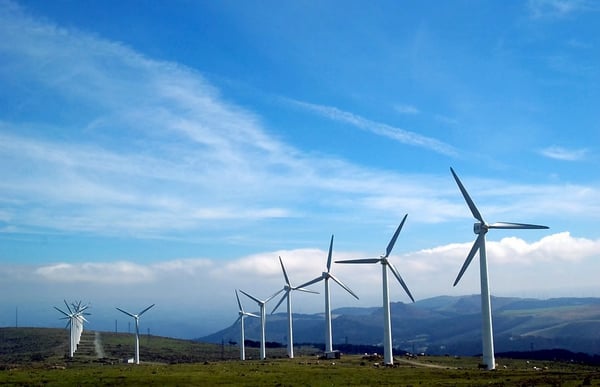Hydrogen, the most abundant element in the universe, is now being called the super fuel of the future. Clean hydrogen production will play a major role as we move away from carbon economy and fossil fuel dependency.

Hydrogen is a highly transportable energy carrier and must be produced from hydrogen-containing-compounds, such as water (H20) or natural gas. As clean as hydrogen is, it does require energy to create. Therefore, researchers are working on technologies to economically produce hydrogen in environmentally friendly ways.
Using renewable resources to produce hydrogen is key to minimizing environmental impact. Hydrogen allows storing excess renewable energy when there is no demand for it. As an energy carrier, it offers an alternative to the electric grid in order to transport low carbon energy into our cities.
How is hydrogen produced?
The cheapest and most common way to produce hydrogen is Natural Gas Reforming. It is a process that does not require combustion. Instead, natural gas and high-temperature steam produce the hydrogen. Natural gas (CH4) molecules and water (H2O) work together to create hydrogen (H2), generating a carbon dioxide (CO2) by-product.

This process accounts for 95% of hydrogen production in North America. So there is room for more environmentally friendly processes to take hold in the market.
These include electrolysis, renewable liquid and biogas reforming, as well as fermentation. However, if electrolysis, for example, is to be low-carbon, renewable resources should create the electricity.
Such resources include solar, wind, and geothermal energy. According to Bloomberg New Energy Finance, the past ten years have seen the cost of solar PV modules fall by 80% and the cost of off-shore wind fall by 50%. This is providing a path to low cost green hydrogen.
In addition, researchers are developing many other clean hydrogen production techniques. And although they are not yet commercially available, they do show promise.
For instance, there are new technologies that focus on water splitting using
- high temperature
- photobiological processes
- photoelectrochemical processes
What about the costs?
Hydrogen distribution is a major cost to consider. However, thankfully, the distribution network is already in place. The thousands of gas stations that already exist just need to be re-tooled to disburse hydrogen instead of fossil fuels.
But there are challenges.
Transporting, storing, and delivering hydrogen to these stations is more expensive than delivering fossil fuels. Building a new hydrogen pipeline network also involves high costs up front. In addition, engineers may need to rework pipeline materials and compressor design to handle hydrogen.
However, producing locally can maximize local resources, reducing the need for long travel in distribution. This can further help reduce greenhouse gas emissions.
There are also tradeoffs between centralized and distributed production to consider. For example, producing hydrogen centrally in large plants cuts production costs but increases distribution costs. Producing it at fueling stations using an electrolyser or small size natural gas reformer cuts distribution costs but increases production costs. This is because of on-site construction costs in creating the production facilities.
So, besides producing hydrogen cleanly, one of the greatest challenges is reducing costs. For transportation, hydrogen must also be cost-competitive with fossil fuels on a per-mile basis.
Conclusion
Although there are challenges that go along with clean hydrogen production, it is a worthwhile investment that will help lead us to a cleaner future. Many renewable energy sources are becoming available that can produce hydrogen in a more environmentally friendly way.
Also, as with any other worthwhile technology, there needs to be an investment in infrastructure. One need only be reminded of the global fibre-optic network that was required prior to the deployment of the Internet. If we have the same attitude toward hydrogen, the planet will reap the benefits of widespread super fuel use.
Join the conversation. What are your thoughts on using renewables to produce hydrogen? Let us know in the comments.
Footnote: Content for this article was referenced from the US Department of Energy website.
Get more in depth knowledge.
Download our free white paper to learn about hydrogen refuelling infrastructure for European transit operators.
